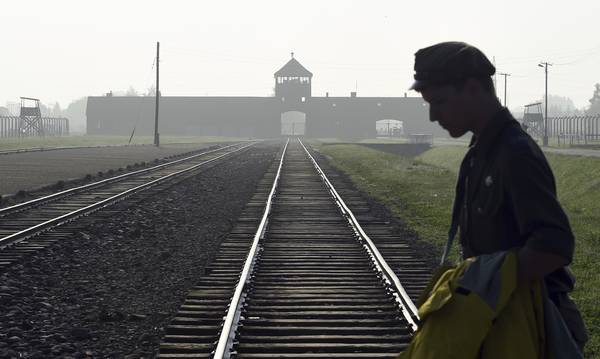Auschwitz volunteer celebrated in Rome 70 years after death
Meeting on the Polish hero Pilecki with the historian Patricelli
26 March, 20:15Pilecki, who also fought Stalinist totalitarianism, is the protagonist of the meeting organised by the Polish Institute of Culture on March 28 at 6 pm at Palazzo Blumenstihl in via Vittoria Colonna 1.
The incredible, adventurous and tragic life of one of the bravest and least known men of WW2 will be described by the historian Marco Patricelli, from Abruzzo, who for the first time since some secret documents kept in the archives of the Polish Communist secret services were unveiled, told Europe the story of Pilecki in a book ''The Volunteer''(published by Laterza), translated into several languages.
The cavalry captain in November 1940 managed to send the first ever report on the Nazi concentration system to London, the city which hosted the Polish government in exile. It was March 1941 and the report on the atrocities committed at Auschwitz was considered by the English 'exaggerated'. Then he sent some more reports, including the one on the beginning of the Shoah, calling on the Allies to bomb the trains and the ''factory of death''. After escaping from the extermination camp, Pilecki took part in the Warsaw uprising of 1944 and was imprisoned by the Germans in an interment camp where he remained until the end of the war. In 1945 Pilecki wrote in Italy a detailed report on the experience he had lived n Auschwitz, which was also top secret. After returning to Poland, where he had left his wife and two children, he established there a network of resistance to preserve his country from complete Stalinization. Discovered by the communist authorities, he was arrested, tortured and sentenced to death in a sham trial, and was shot to the back of the head on May 25, 1948.
Pilecki's story remained unknown until the fall of the Berlin Wall in 1989. Then the figure of this man who fought both the totalitarianism of the twentieth century was 'restored', thanks to an Italian historian. The evening promoted by the Polish Institute of Culture, after Marco Patricelli's speech, includes the screening of the documentary film ''Pilecki'' (2017) by Miroslaw Krzyszkowski.(ANSA).














